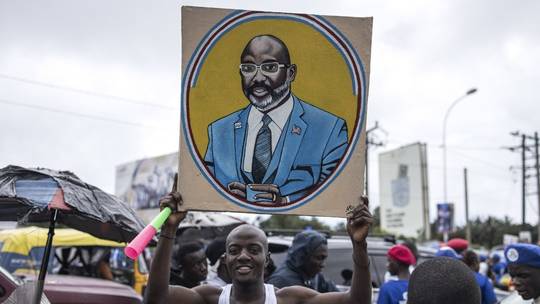Africa
President of Liberia seeks second term

George Weah is running for re-election despite being accused of corruption and facing financial difficulties.
To decide whether current President George Weah, a former well-known footballer, should serve a second term, Liberians went to the polls on Tuesday. According to general consensus, voters’ main worries are security and the economy.
Weah’s first term was marred by accusations of corruption and the persistent economic difficulties that the longest independent nation in Africa is experiencing.
READ ALSO: Liberians go to the polls as President Weah seeks reelection
There are 20 contenders vying for the presidency. On Wednesday, the country’s electoral body will start announcing early results. To avoid a runoff, which would take place in early November, a candidate needs to receive more than 50% of the vote.
To oversee the voting, representatives from the US, ECOWAS West African Bloc, European Union, and African Union deployed observers.
Elections, which are also being held for the nation’s legislature, were promised to be peaceful by the major political parties. Three individuals were killed in riots between supporters of opposing parties last month, though this sparked worries of a return to carnage.
Several others were hurt during a Weah electoral rally on Sunday, when violence also broke out.
Weah, 57, left his career as an international football player to enter politics. In 1995, he became the only African to win the Ballon d’Or, the highest individual honour in the sport, and he represented elite teams like Chelsea, Paris Saint-Germain, and AC Milan.
Weah was chosen in 2017, the first democratic transfer of power in Liberia in seventy years.
These are the initial elections since the UN’s peacekeeping operation in Liberia was terminated in 2018. Additionally, this will be the first election that is held without the UN mission that was in Liberia providing external security. Therefore, security will be up to Liberia’s security authorities, according to Oscar Bloh, leader of ECC, the country’s biggest election monitoring organisation, in a CNN interview. Bloh also raised concern over the fact that training for election officials had only started recently.
This is seen by many as a turning point for Liberia, which suffered from two violent civil wars that claimed 25,000 lives between 1989 and 2003 and a catastrophic Ebola epidemic between 2013 and 2016.
